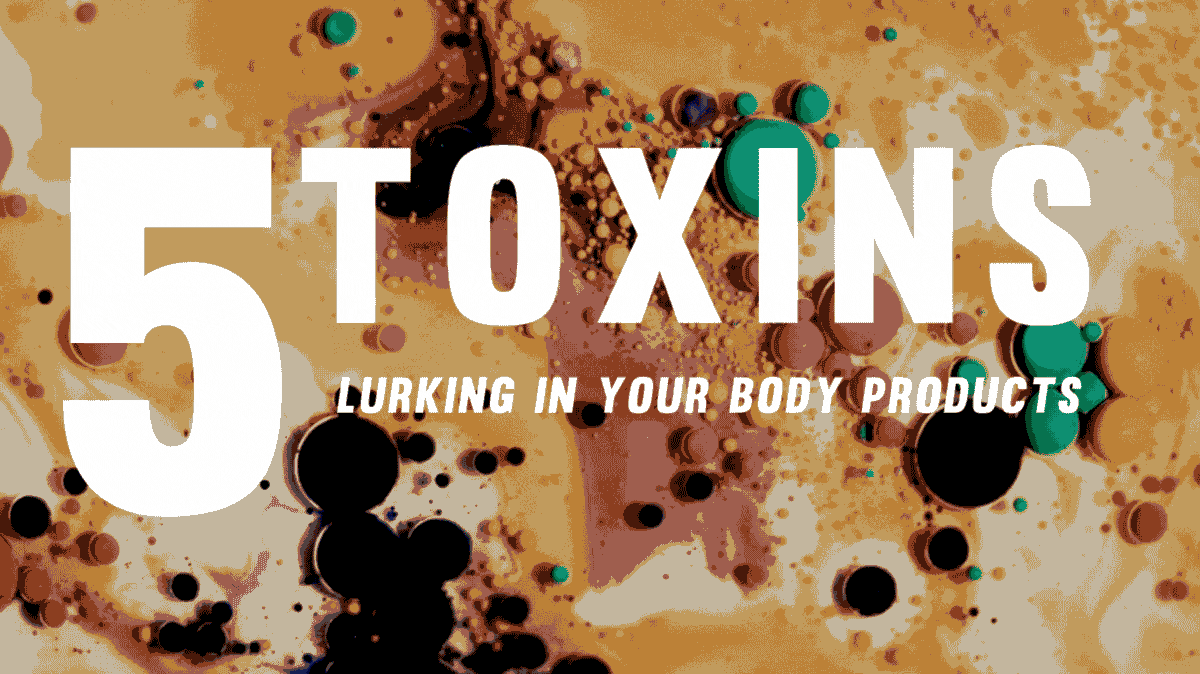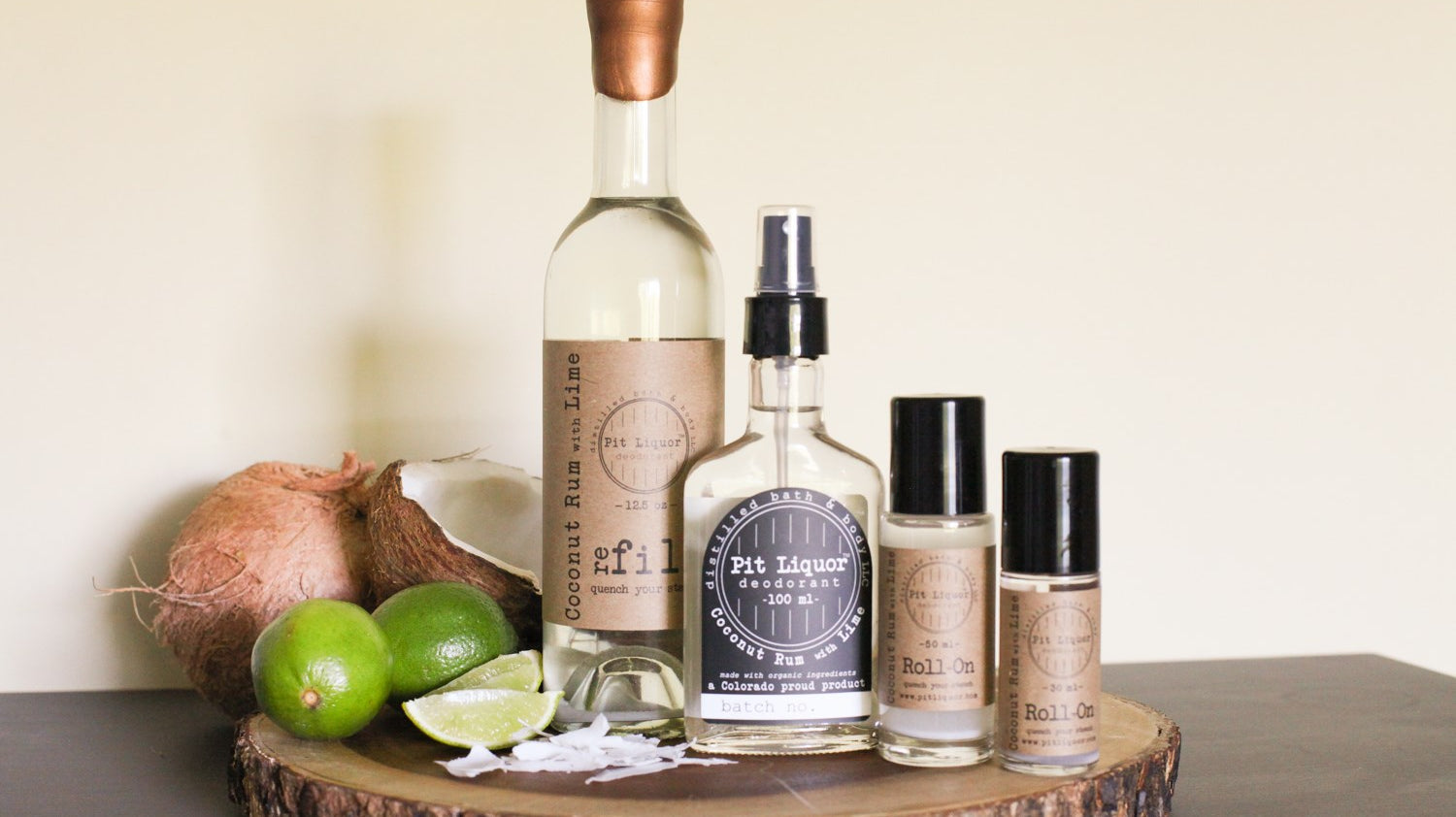BLOGS
Filter by
All
A deodorant you can trust
alarming chemistry in daily-use products
alcohol
alcohol kills bacteria
aluminum in deodorant
aluminum-free deodorant
are metals bad for people
are metals harmful for skin
armpit bacteria
armpit detox
armpit nerds
armpit odor
armpit odor battle
armpit odor elimination
armpit odor problem
armpit science
armpits
aromatic foods
athletes
baby
baby's first road trip
bacteria
bath and beauty industry regulation
battling armpit odor
battling pit odor
Beach deodorant
Bear Creek Distillery
beauty
beauty product labeling
beauty routine
best deodorant
best local product
best natural deodorant
best organic body product
best reviewed non-toxic deodorant
blasted boob sweat
blasting boob sweat
boob sweat
boob sweat problem
bra line deodorant
bra line sweat
chai
cheers
children
Christmas
clean candles
clean deodorant
Clean products with rewards
cleaning a car seat
Coconut Rum with Lime
Coconut Rum with Lime Pit Liquor
colorado
combat boob sweat
company dedicated to non-toxic ingredients
Coronavirus
cosmetics and hygiene
cosmetics industry regulations
COVID-19
daily-use products
delectable pits
deodorant
deodorant for boob sweat
Deodorant for intense sunshine and heat
deodorant for pregnant or breastfeeding moms
deodorant ingredient list
deodorant ingredients
Deodorant ingredients you can trust
deodorant ingredients you could eat
deodorant labeling
deodorant research
deodorant safe for pregnancy
deodorant science
deodorant that works
deodorant toxicity
deodorant trend
deodorize a car seat
deodorizing
deodorizing lifehack
deodorizing spray
detox
detox bath
diapers
Donate Hand Sanitizer
dry shampoo
edible deodorant
effective natural deodorant
effective organic deodorizing spray
effects of metals in the body
eliminating armpit odor
eliminating pit odor
eliminating sour smell
essential oils
facts
fall
family
family road trip
fan-favorite natural deodorant
favorite non-toxic deodorant
food and alcohol pairing
food-based aromas
food-grade deodorant
food-grade for your skin
food-grade hygiene products
food-grade ingredients
food-grade is healthier
food-grade skin products
Free
Free Hand Sanitizer
Friends don't let friends stink
fun experiences
generosity
generous
get back up again
getting rid of a sour smell
getting rid of vomit odor
getting vomit odor out of a car seat
gift giving
gifts
go natural
going clean
growing
guys
hand sanitizer
healthy daily-use products
healthy lifestyle
heavy metals
helping
highly-rated natural deodorant
how does deodorant work
how to keep your bra line fresh
how to use Pit Liquor
hygiene product labeling
hygiene training
I want to smell better
ingredients by nature
innovative food and alcohol pairing
itch-free natural deodorant
Just say no to aluminum
keep the "girls" smelling sweet
keep your pits fresh
kickstarter
Kickstarter Success
kids
kind
kindess
learning
libations
lifehack
limited edition
liquor
made in America
makeup isn't only skin deep
mixology
mom
myths
natural daily-use products
natural deodorant
natural deodorant that doesn't make pits itch
natural deodorant that stands up to heat and humidity
natural deodorant trend
naturally scented deodorant
never synthesized
new things
news
no aluminum
No EDTA
No more aluminum in your pits
no parabens
no petrochemicals
no propylene glycol
No synthetic fragrance
no toxic chemicals
no toxic ingredients
no toxic side effects
No Toxin Zone
no triclosan
non-toxic deodorant
non-toxic deodorant that works
non-toxic deodorant that works at the beach
non-toxic lifestyle
non-toxic living
organic alcohol
organic daily-use products
organic deodorant
organic lavender
organic over-proofed alcohol
organic whiskey
parent
parent life
parent lifehack
parenting
parenting in the trenches
parenting when it's gross
Pina Colada
Pina Colada armpits
Pina Colada pits
pit bacteria
Pit Liquor
Pit Liquor customer reviews
Pit Liquor deodorant best practices
Pit Liquor FAQs
Pit Liquor Kickstarter
Pit Liquor Limited Edition scents
Pit Liquor makes pits happy
Pit Liquor on Spring Break
Pit Liquor Points
Pit Liquor Pro Tips
Pit Liquor Refer a Friend
Pit Liquor reviews
Pit Liquor Rewards
Pit Liquor unscented options
Pit Liquor wins
pit odor battle
pit odor problem
plastic-free deodorant
pre-sales
pre-teen odor
pregnancy-safe deodorant
process
putting metal on the skin
Queen Elizabeth I makeup routine
quench pit stench
quench the stench
quench your stench
raising kids
razor burn
read the label
read the label before putting it on your skin
refill bottles
roll-on deodorant
roses and champagne
science
science about armpits
search for the right deodorant
skin absorption
skin drinks it in
skin science
small batch
smell better
smell fresh
smell like success
soap
soiled car seat
sommelier
sommelier for your pits
spray-on deodorant
Spring Break
Spring Break in Cancun
stay smelling sweet on the beach
stink
Stink-free Spring Break
stinky car seat
stinky kids
strawberry basil lemondate
surprising deodorizer
switching to natural products
teen odor
The best deodorant on the beach
the only deodorant I'll ever use
toilet training toddlers
tossing out toxicity
toxic metals in beauty products
toxic metals in deodorant
toxins
toxins in cosmetics and personal hygiene products
trust
trustworthy ingredients
under-boob sweat
unexpected uses
unicorn
unicorn elixir
vegan deodorant
vodka
Vodka Hand Sanitizer
walk before you run
walking
we love the planet
what deodorant to use while pregnant
what killed Queen Elizabeth I
what metals are bad for people
What now
what's in your deodorant
when kids get stinky
whiskey
whiskey boxes
whiskey cedarwood
whiskey deodorant
whiskey lavender
Whiskey Pineapple
Whiskey Pineapple Pit Liquor
why do armpits stink
Why my pits love Pit Liquor
why switch to natural products
You need to sweat
And We Thought Aluminum was Bad...
Can your deodorant really cause cancer? New research says the answer is yes. CNN recently announced a recall of several major deodorant brands, including Old Spice and Secret, that were found to have benzene in their spray deodorant products. According to the Centers for Disease Control and World Health Organization, “Benzene is a well-established cause of cancer in humans.”
—
Melanie Allen
5 Toxins Lurking In Your Body Products
Come along for a fun "info binge" as we get nerdy about deodorant. Do you know what's in yours?
—
Laycie McClain
Your Surprising Solution for Pit Stench
Alcohol + Food-Based Aromas = Dreamy Pits
Pit Liquor deodorant is something like a sommelier for your pits—offering a complementary pairing of alcohol and food that really does make you smell absolutely delicious.
—
Laycie McClain
You and Queen E: The DL on Toxic Daily-Use Products
Queen Elizabeth 1 and her beauty regimen have a lot to teach us about knowing the ingredients of your daily routine. Do you know what's in the products you use every day?
—
Laycie McClain
The Truth About Armpit Detox
Some people claim that you have to detox your pits before a new natural deodorant really works. Is that true?
—
Jason and Erica Feucht




